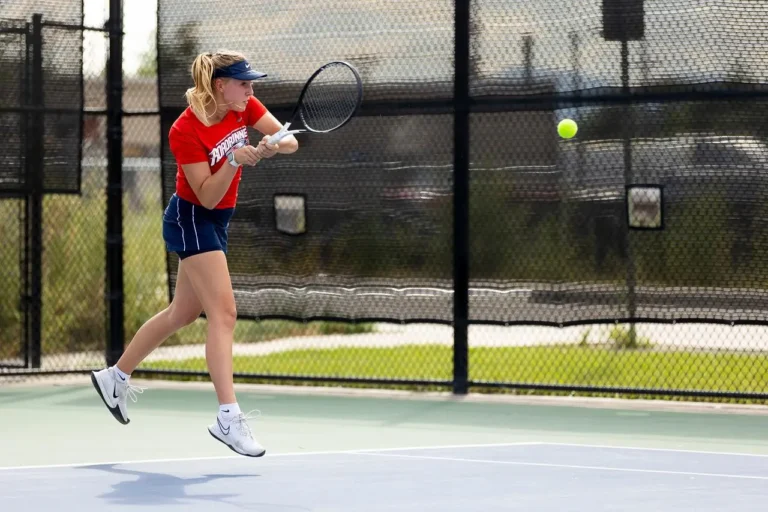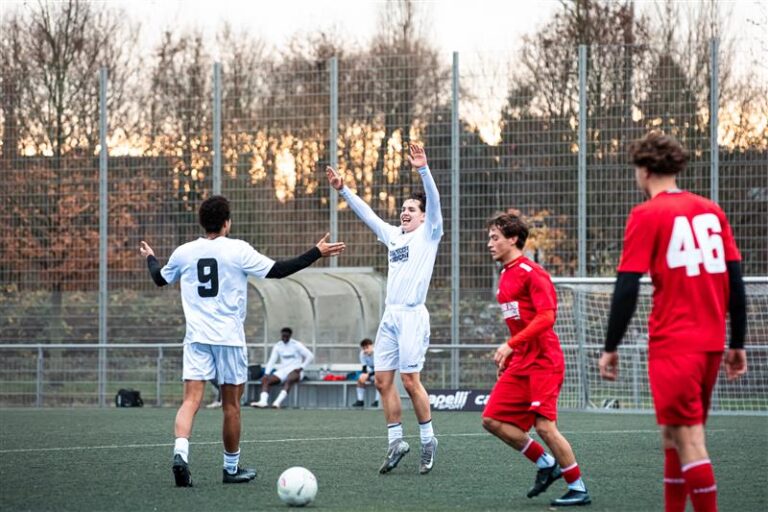
Wellbeing and mental health in student athletes
Understanding the Impact of Sport, Lifestyle, and Environment on Student Athletes’ Mental Health
Mental health in sports is an important topic receiving more and more attention today due to its impact on overall wellbeing. Why is mental health important for students practicing sports at university alongside their studies? Placement Specialist Immie Cowper from Keystone Sports Germany explains further the various aspects of mental health, how to improve mental wellbeing, and which resources are available to student-athletes.
What is Mental Health, and why is it important?
The overall topic of health encompasses three areas: physical, mental, and social wellbeing. When each area is seen to be complete, meaning that when someone is accomplished in each of these elements, their wellbeing can be successfully fulfilled. The opposite can be seen when someone is lacking in one or more of these areas, which can result in a condition of ill-being.
Mental health is a specific segment within the area of health and wellbeing, and mental wellbeing enables people to cope with stressors, realise their ability, learn, and work well. Achieving a good mental health state is the pillar for growth.
So why is mental health so important? Well, although it is a silent aspect of our health and our lifestyle, it directly affects how we think, feel, and act. The condition of someone’s mental health will determine how well they can handle pressure, how they relate to others, and whether they are able to make healthy choices. All these factors are certainly significant in the student-athlete lifestyle!
The Initial Move to Study Abroad As a Student-Athlete
Moving away from home can bring up a whirlwind of emotions and feelings. Excitement for what’s ahead, happiness for the school and coach you’re joining, sadness for leaving your friends and family, nerves about the unknown, stress over making sure you’ve remembered everything, and even a sense of achievement for all the work you’ve put in to get this far! It is completely normal, and even expected, to feel like you’re on a rollercoaster of emotions!
Let’s take Lilly Stienemeier as an example, a fellow Keystone Sports athlete from Germany who has just graduated from MSU Denver. She said one of her most challenging moments was the initial move:
“Moving to a new country on your own, without knowing what to expect or where to go. Of course, I was excited, but it was also scary at the same time. It is a big step for anyone, but especially when you are 18 years old.”
It is in these situations that self-kindness is so important. It can be difficult and stressful to handle the unknown, but your coaches and teammates fully understand your situation and are there to help. Ask as many questions as you need and try not to put too much pressure on yourself to have everything under control.
How Does Being a Student Athlete Affect Your Mental Health?
Being a student-athlete requires focus and dedication in both academics and athletics, each demanding a significant amount of time, energy, and hard work. Additionally, being part of a team and representing your school means you have teammates and coaches who rely on you to be at your best.
Being a student-athlete involves a great deal of responsibility and organisation to ensure all aspects are managed, enabling you to perform consistently every day. A busy schedule can be overwhelming, tiring, and stressful to manage, so it is important to check in with yourself daily and ensure you are taking care of yourself both mentally and physically. You’ll have a lot to handle – from attending classes, completing homework, and participating in group projects, to fulfilling athletic responsibilities such as practice, gym sessions, rehab, and recovery.
It may not always be easy and can be overwhelming, but these are the very reasons why student-athletes love their time at university! At Keystone Sports, we often hear that although it is very hard work, you learn to cope, grow, and thrive in the lifestyle!
When times are tough, always remember that taking care of your mental health can enhance your athletic performance and support your personal growth. Your coaches and teammates are there to help, so take advantage of being surrounded by supportive figures!

Importance of Exercise and Diet on Mental Health for Student Athletes
We all recognise the significant impact that physical activity has on our physical health, but it also contributes to our mental well-being. As student-athletes, maintaining an inactive lifestyle is nearly impossible; however, athletes often strive for perfection and place considerable pressure on themselves, which can diminish the enjoyment and mental benefits of exercise.
A useful tip for coping with mental strain and pressure is to set realistic goals. These goals should require effort and dedication (so they aren’t too easy), but you must believe you can achieve them. They should be related to your mindset, motivation, timeframe, and ability. No goal is too small or unimportant, and you should never feel ashamed to celebrate achieving one. This approach helps reduce comparisons to others and increases focus on the present moment by providing a clear pathway. It can also be applied to your academic progress and is an excellent way to track your development, which can boost confidence levels and self-belief.
Diet also plays a significant role in our mental health, including that of student-athletes. When feeling stressed, overwhelmed, or low, it is common to gravitate towards foods high in fat, sugar, and carbohydrates. It is essential for student-athletes to maintain a balanced diet to ensure they have sufficient energy to perform, and it is healthy to consume all types of foods in moderation. However, both mentally and physically, our bodies require fruits and vegetables, which can be achieved by striving for a colourful diet!
While you may spend a lot of time on your sport, never underestimate the positive impact a simple walk outside can have on your mental health!
Use the Available Student-Athlete Mental Health Resources
Colleges and universities offer a plethora of support systems. Whether you possess a strong mental well-being or feel it’s an area for improvement, one of the most beneficial steps you can take is to reach out to someone. Whether you’re uncertain with numerous questions, feeling stressed and worried, or simply missing home, finding someone to talk to or seek guidance from can help alleviate the burden you’re carrying.
On campus, there is an abundance of resources available: classmates, teammates, coaches, fellow student-athletes, teachers, or student-athlete advisors. Many of them are always willing to lend an ear whenever their student-athletes need to talk. In addition to the health center for physical health, many schools also have a student counseling and psychological services facility where they offer guidance and support. Some athletic programs even provide sport psychological services exclusively for athletes to utilize. With a multitude of resources and supportive individuals available, you’ll never be alone and will always have people in your corner!
Student-Athlete Lifestyle and the Road to Mental Toughness
Becoming a student-athlete is a wonderful experience – playing the sport you love, being part of a team all striving for the same goals, and meeting a diverse range of people from all over the world. These years are truly some of the best, leaving you with the most incredible memories. It’s no secret that it also requires responsibility and hard work, but through this, you prove to yourself that you can achieve things you never dreamed of.
Hard work entails dedication, even when you may feel tired or not at your best. By showing up every time, you learn to become resilient and how to handle tough situations and challenges, both mentally and physically.
Continuously proving to yourself that you can successfully handle challenges brings an immense sense of achievement and boosts your self-confidence. Not only does your self-confidence grow, but the range of mental, physical, and general life skills that being a student-athlete teaches you is unparalleled. Time management, organization, mental toughness, resilience, dedication, and patience are just some of the skills that being a student-athlete instills in you.
Reflecting on her student-athlete experience, Lilly shared: “Nothing will prepare you more than being a student-athlete for four years. It is so mentally and physically tough, and you learn to show up regardless of the smaller details. The student-athlete life and experience are truly unique and prepare you for the future like nothing else.”
These inspiring words from someone who has just completed their student-athlete journey emphasize that the skills you learn will stay with you for life, leaving you amazed at how much you’ve grown and learned.

Steps You Can Take to Prioritise Your Mental Wellbeing:
- Schedule time for Self-Care: Make it a priority to carve out time for yourself every day – whether that involves taking a leisurely walk, practicing meditation, preparing your favorite meal, or simply sitting in silence for a few moments.
- Connect with others: Whether it’s confiding in a friend, seeking support from a coach, reaching out to a family member, or consulting with a mental health professional, connecting with others is crucial when feeling stressed or overwhelmed.
- Set realistic goals: As a student-athlete, it’s easy to succumb to pressure in both academics and athletics. However, it’s essential to maintain a realistic perspective when setting goals – and never hesitate to celebrate achievements, no matter how minor they may appear!
- Be kind to yourself: While it may sound simple, we often extend more compassion to others than we do to ourselves. Always remember that it’s okay to make mistakes, and failure is a natural part of growth. A helpful strategy to cultivate self-compassion is to treat and speak to yourself as you would to a friend!
Remember, mental health is just as vital as physical health for student-athletes. By prioritizing your mental well-being, you can enhance your athletic development and physical performance.
HELPFUL RESOURCES AND LINKS
The Hidden Opponent:
https://www.thehiddenopponent.org/
National Alliance on Mental Illness (NAMI):
Helpline: 1-800-950-6264
https://www.nami.org/
Athletes for Hope:
https://www.athletesforhope.org/
NCAA Mental Health Resources:
https://www.ncaa.org/sports/2021/2/10/sport-science-institute-mental-health.aspx
https://www.ncaa.org/sports/2016/8/4/mental-health-educational-resources.aspx
Share this article:

About the author
Immie Cowper
After graduating from UNC Charlotte with a bachelor’s in psychology, Immie returned to Europe and completed a master’s in Sport Psychology from the German Sport University. Throughout her time playing sport, Immie developed her passion of helping others and the importance of prioritising the balance between physical and mental wellbeing. Now as a Placement Specialist at Keystone Sports, Immie is able to guide upcoming talented athletes to find opportunities where they will be thriving on the sports field, in the classroom, and in their personal lives.
More related articles

The Keys to Success During the College Sports Season
Learn differences between in-season and out-of-season and what it takes to end your competitive year successfully! Get the best tips and guidance in our article by Immie Cowper from Keystone Sports Germany.

Why You Should Play Summer League Football in the USA
The Summer League is in full swing with matches and tournaments happening all over America. But what is the Summer League, and what are the benefits of participating in it as a university football player?

How to Be Best Prepared for the Football Season as a University Player
Ready to excel in the upcoming football season? Marius from Keystone Sports Nordics guides you through the key strategies for optimal pre-season preparation. Learn how to stay in shape off-season and make a strong start for a successful season!

